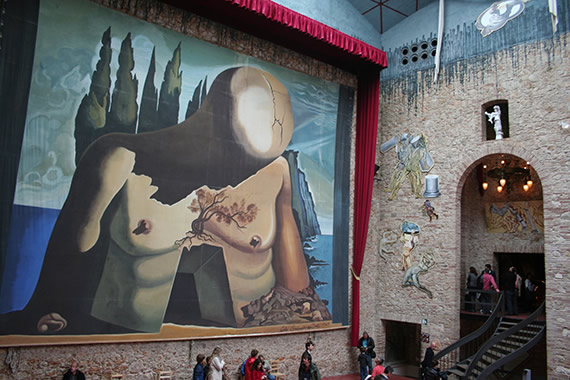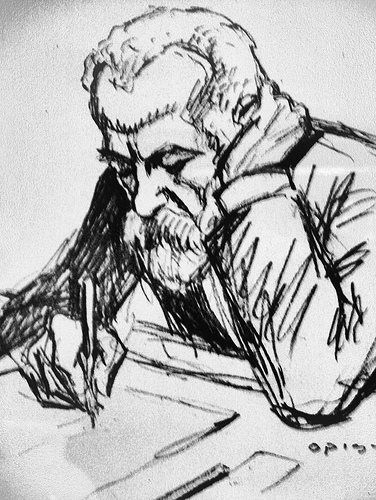Q: When did you decide to become an entrepreneur?
I think it was when I was 12 because that was the year that one was legally allowed to work for a salary. I got a job with my friend Brian in a car wash in my town. We worked Saturdays and Sundays, from nine till five, drying cars as they rolled out of the building. Since we were small we were assigned to clean and dry the inside windows. Brian did the front. I did the back. It was a very simple job, mindless really. But it was relentless. We were in and out of each car as soon as they rolled out, about one every thirty to sixty seconds. It was amazingly boring. I found myself looking up at the clock every eight or ten cars. Just three or four minutes had passed. On top of that the boss, an obese, cigar-chomping character straight out of central casting, would pillory us in order to impress his best customers. “What kind of job is that? Do it again!”
I think it was then that I thought, “I got to find a way to make money on my own.”
Brian and I eventually reached burnout. We refused to do interiors any more, we told the fat man. “We will only dry,” we announced. “And the only thing we will dry is the radio antennas.”
We were fired before the second hand of that clock made its next rotation.
I was happy to be free from the car wash but was very soon missing the $30 a week I had been making. So I came up with the idea of writing and publishing a booklet called “Excuses for the Amateur.” It was a helpful guide for my fellow classmates who were too dimwitted to come up with excuses more creative than, “The dog ate my homework.”
The excuses I listed were – and I can’t prove this since it is no longer extant – clever and mildly witty. I sold out the first edition and pocketed more than fifteen dollars, if I remember correctly. “This is what I want to do,” I thought. The next day I got hauled down to the principal’s office a personal critique of my booklet and business idea by Sister Bonecrusher herself.
In retrospect I can see that it incorporated much of what I did in my adult career: writing, direct marketing and sometimes pushing the envelope a bit too far.
Without the prospect of further editions, I put my publishing dreams on hold and got a paper route and some lawn cutting and snow shoveling jobs and before I knew it my weekly compensation as an independent operator exceeded my salaried position at the car wash.
I call this my annus mirabilis.
Q: In Ready, Fire, Aim you say that of all the forms of entrepreneurship the one you least like is retail. What sort of experiences did you have that formed that view?
A: Yes. Nearly every one. During high school I took weekend and evening jobs at a few local restaurants. I worked as a dishwasher, busboy and waiter. I worked hard – at least by the lax standards I kept at the time – but reasons unknown to me at the time I was never a standout employee. My employment as a waiter came to me thanks to my younger brother Andrew who had secured a waiting job at Scotty’s, a steakhouse about fifteen minutes walk from my house.
Scotty’s was
a traditional steakhouse in most respects. The waiters were all mature and experienced men, my brother and I being the sole exceptions. My brother was astutely condescending to the other waiters, which made them think him their equal. I was deferential, which made them realize I was just a kid who had no right to be there. While I worked diligently, whispered criticisms reached Scotty.
Scotty, I should say, was a middle-aged Jew who had decided to speak with a Scottish accent and name the restaurant Scotty. The exit interview, as they call it these days, went something like this:
Mark, me boy. Sit ye down. I’ve something to tell ye.
What is it, Scotty?
I hate to tell ye this, lad, but I have to let ye go.
Let me go, Scotty? But why? I’ve always been on time. I’ve always worked hard. I’ve never dropped a tray.
Ah, don’t make me tell ye, lad.
Tell me!
Well, if ye want to know, I’ll tell ye.
Yes, please.
The truth is, me boy, you’re a hump!
A hump?
Yes, me boy. It’s a sad fact, but you’re a hump.
I never had the gumption to ask him what a hump was. I figured that the lesson – a lesson I’d already learned at least four times by then – was that I was not cut out to be an employee.
Q. That’s very funny. And I can see how that might have soured you on your potential as an employee, but what made you decide that the retail business itself was a bad business.
A: I don’t think it’s bad for everyone at all times. But I do think that it presents the entrepreneur with all sorts of unnecessary and difficult problems.
Q: For example?
A: For one thing it requires a great deal of expense getting started. You have to buy or put money down on a building. You have to outfit that building. You have to buy inventory. And so on. Even a small retail operation – say, a local camera shop – will set you back a hundred grand or more before you open the doors.
I’ve talked in some detail about this in several of the books I wrote (as Michael Masterson) but the kind of entrepreneurial business I like is one that allows you to test the business idea as quickly and cheaply as possible. You can do this easily if you are selling products online. You can also do this in almost any sort of personal service business. But you can’t do that in retail. You have to risk a whole lot of money before you have any idea if the basic business proposition is valid.
Another thing I don’t like about retail – at least from the entrepreneur’s point of view – is that it becomes a ball and chain. Retail businesses generally rely on inexpensive and inexperienced employees to make profits. And good retail managers are few and far between. This means that despite your best efforts you can almost never get away from the business. You must be there – at least a few hours a day – every day the damn business is open.
There are other reasons I don’t like retail. Any would-be entrepreneur contemplating a retail business should read chapter X of Ready, Fire, Aim before taking the plunge.
Q: But surely you acknowledge that some retail businesses make their owners very wealthy. McDonald’s, for example. Or the Gap.
A: That is true but those are not really retail businesses, at least in the conventional sense. They are franchises. Those businesses work on a very different model. You build one store that works and you replicate it over and over again. You make money by selling the stores to others.
Q: Did you ever have an experience with a retail business that worked?
A: Yes. Several. One in particular is a painful memory because I had the chance to be an owner but demurred. It was in 1972. A close friend of mine, Michael, had an opportunity to open up a rock and roll club in Freeport, Long Island. Michael and his partner (who could have been Scotty reincarnated) bought an old bar on Merrick Road. The previous bar had been a “bucket of blood” as they called it, a gin joint for alcoholics and bikers. Mike asked me to help him renovate the building. By that time I had done a lot of work as a freelance carpenter, so I was able to help him design and build out the club into something that college kids would like. Mike gave me the option to be paid for my work or trade it for sweat equity. I chickened out and opted for the cash. It eventually became one of the largest rock and roll clubs on the island. We had national acts like Richie Havens and The Ramones.
Q: What did that tell you?
A: Sweat equity is a very good deal if you (a) believe in the concept and (b) can afford it.
Q: So it wasn’t a total loss?
A: Not at all. I learned a valuable lesson and Mike gave me a job as a bouncer. That was how I met my wife. So I have The Right Track Inn to thank for my marriage.
Q: You mentioned that your first experience in publishing was when you were twelve years old. What was your next experience?
A: I did some publishing during my stint as a Peace Corps volunteer in Chad, in Africa, from 1975 to 1977. I was assigned to teach English literature and philosophy at the University of Chad. The Peace Corps director at the time asked me to write and publish a newsletter for the in-country volunteers. I did that and enjoyed it. It was also during that period that I wrote a book in which I attempted to document some stories and songs that were kept alive by an oral tradition. That book was never published but it gave me a taste for writing books.
After I got back I responded to an advertisement I saw in some Peace Corps publication for an editorial position in Washington, D.C., writing and editing a newsletter called African Business & Trade. I got the job and spent a bit more than four years in Washington, teaching freshman at Catholic University introductory literature courses, working as an editor during the day and attending PhD classes at night.
At first it was loads of fun being an actual journalist. I had no idea what I was doing but I was mentored by a very smart guy named Michael who taught me the importance of thinking about what I was writing before I wrote it. It is mildly embarrassing to admit it now, but I had managed to finish college and graduate school as an A student without ever thinking much about what I was writing.
But eventually the novelty of writing about business wore off. One day I was writing my umpteenth article on countertrade in Nigeria when I fell asleep at the typewriter. When I woke up a moment later I discovered I had finished the paragraph in my sleep.
Q: You jest, of course.
A: No. I swear, it happened. I knew then that I had to get out of the slave-writing side of the business.
Q: So what did you do?
A: Michael had left a few weeks before then. My boss, Leo Welt, was searching for a replacement. I walked into his office and told him that I could do Michael’s job at my current salary. I have no idea why, but he accepted my offer and I became publisher.
Q: How did that go?
A: For me it was a great experience. I had to learn what the publishing business was all about. It turned out it was much more about selling ideas than it was about dutifully researching news and writing articles.
Q: So you became a marketer?
A: A very bad marketer. With Michael gone, I had no one to mentor me. Leo was too busy with his other, more successful businesses. I had to figure out how to sell these newsletters on my own. I did the best I could for the year I was there but I’m sorry to admit that I never figured it out during my tenure.

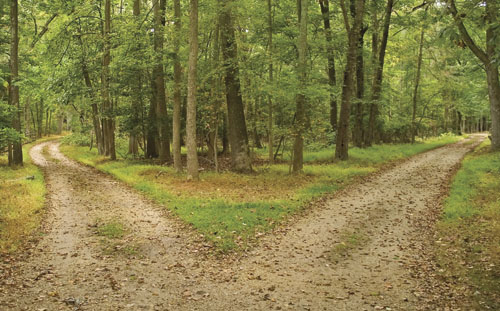
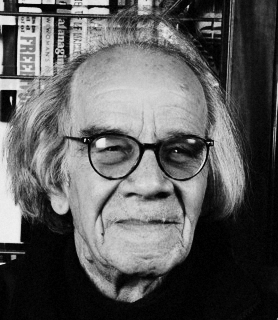
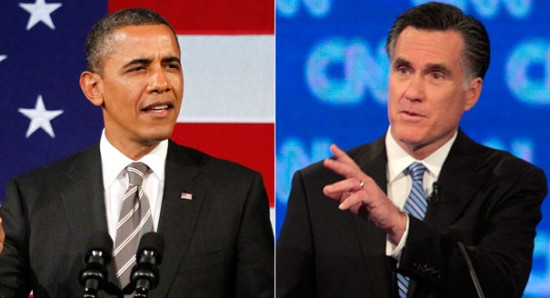

 Liam O’Reilly, a recent graduate from the University of Maryland, told The New York Times that he had applied to 50 employers. He was looking for a job as a paralegal or as a researcher for a policy organization or as an administrative assistant. He got a few interviews and no offers. So he took a minimum-wage job selling software.
Liam O’Reilly, a recent graduate from the University of Maryland, told The New York Times that he had applied to 50 employers. He was looking for a job as a paralegal or as a researcher for a policy organization or as an administrative assistant. He got a few interviews and no offers. So he took a minimum-wage job selling software.


